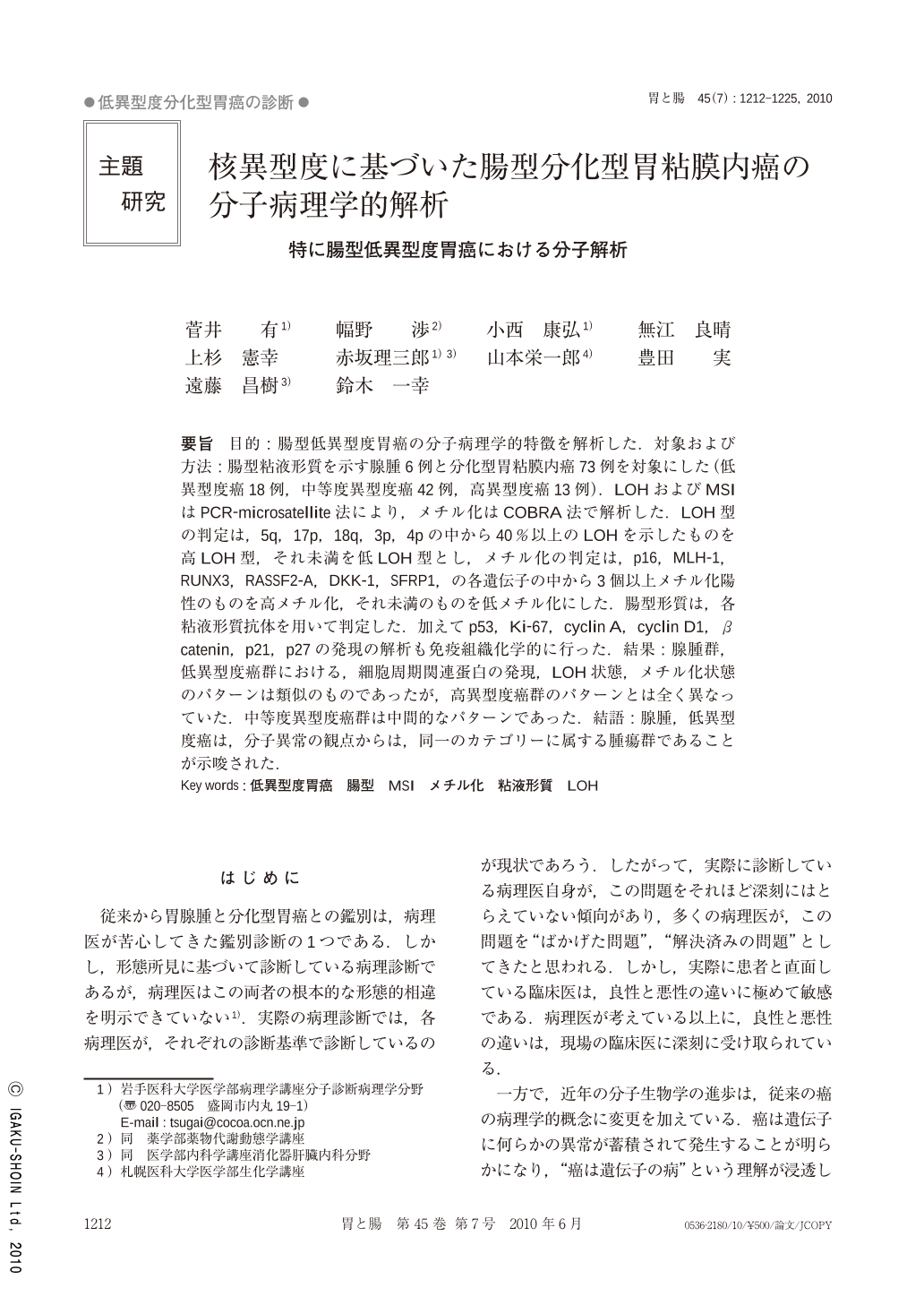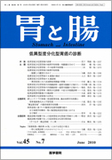Japanese
English
- 有料閲覧
- Abstract 文献概要
- 1ページ目 Look Inside
- 参考文献 Reference
- サイト内被引用 Cited by
要旨 目的:腸型低異型度胃癌の分子病理学的特徴を解析した.対象および方法:腸型粘液形質を示す腺腫6例と分化型胃粘膜内癌73例を対象にした(低異型度癌18例,中等度異型度癌42例,高異型度癌13例).LOHおよびMSIはPCR-microsatellite法により,メチル化はCOBRA法で解析した.LOH型の判定は,5q,17p,18q,3p,4pの中から40%以上のLOHを示したものを高LOH型,それ未満を低LOH型とし,メチル化の判定は,p16,MLH-1,RUNX3,RASSF2-A,DKK-1,SFRP1,の各遺伝子の中から3個以上メチル化陽性のものを高メチル化,それ未満のものを低メチル化にした.腸型形質は,各粘液形質抗体を用いて判定した.加えてp53,Ki-67,cyclin A,cyclin D1,β catenin,p21,p27の発現の解析も免疫組織化学的に行った.結果:腺腫群,低異型度癌群における,細胞周期関連蛋白の発現,LOH状態,メチル化状態のパターンは類似のものであったが,高異型度癌群のパターンとは全く異なっていた.中等度異型度癌群は中間的なパターンであった.結語:腺腫,低異型度癌は,分子異常の観点からは,同一のカテゴリーに属する腫瘍群であることが示唆された.
Background and aims : Our aim is to identify molecular alterations of gastric intramucosal cancers with intestinal phenotype based on their nuclear grade. Materials and Methods : Gastric 73 intestinal phenotype cancers that were selected from gastric 171 intramucosal differentiated-type cancers were obtained based on tumor nuclear grade(low grade, 18 ; intermediate grade, 42 ; high grade, 13). In addition, gastric adenomas were also examined. Immunohistochemical expressions for cyclins D1, A, p21, p27, p53,β-catenin and ki-67, loss of heterozygosity(LOH, 3p, 4p, 5q, 17p and 18q), microsatellite instability(MSI)and methylation status using a panel of 6 genes(MLH-1, RUNX3, p16, RASSF2A, SFRP1 and DKK-1)were examined in 73 intestinal phenotype cancers and 6 gastric adenomas. Results. Among the lesions we examined, there were significant differences in the frequencies of the high expressions of cell-cycle-related proteins, high LOH and high methylation status between gastric adenomas and low grade intestinal phenotype cancers. On the other hand, the frequencies of those parameters in high grade cancers were higher than in the other three lesions. Conclusions. Our data confirm that although distinct molecular alterations in the high grade cancer with intestinal phenotype are characterized by molecular alterations, there are no significant differences of molecular alterations between gastric adenomas and low grade cancers with intestinal phenotype.

Copyright © 2010, Igaku-Shoin Ltd. All rights reserved.


